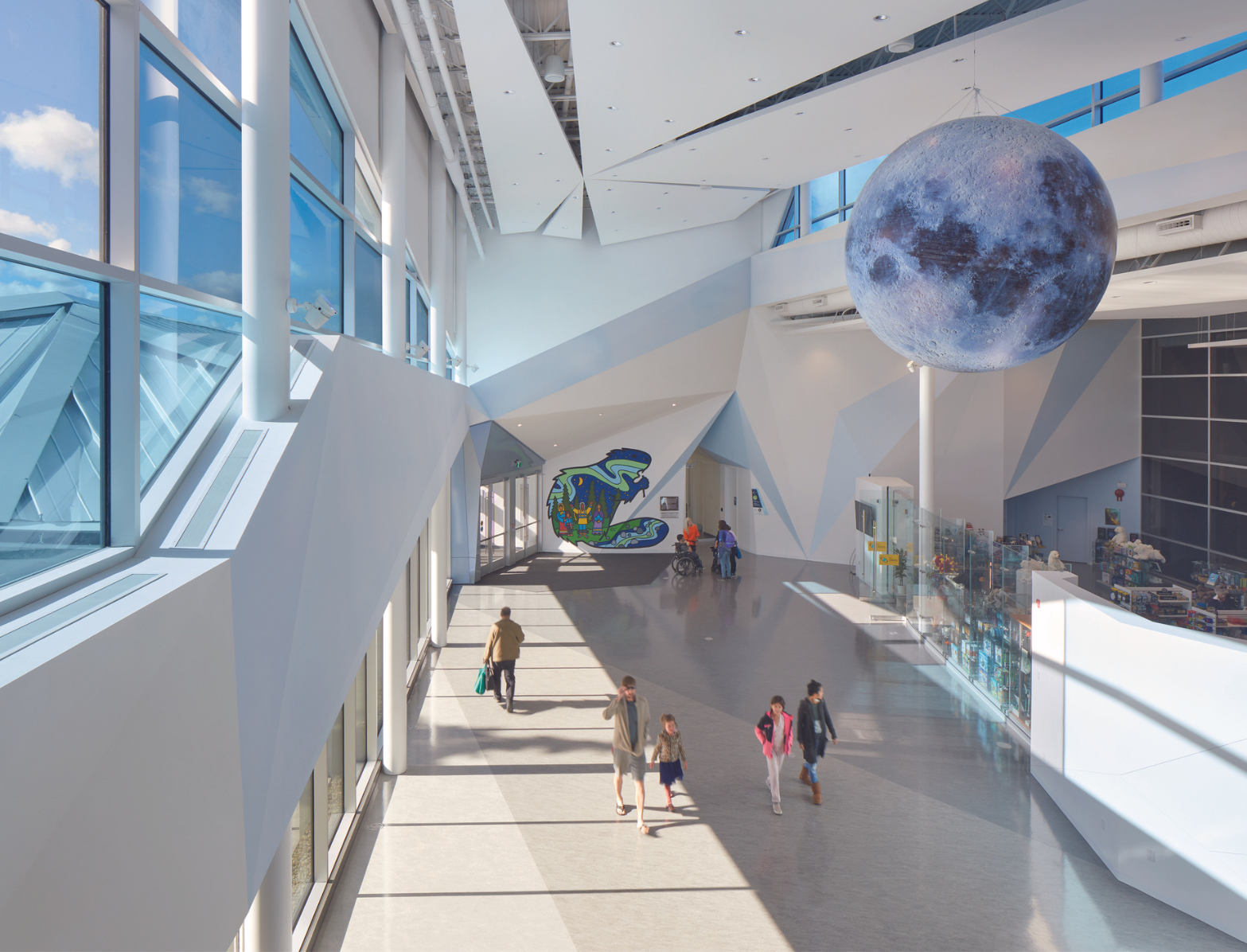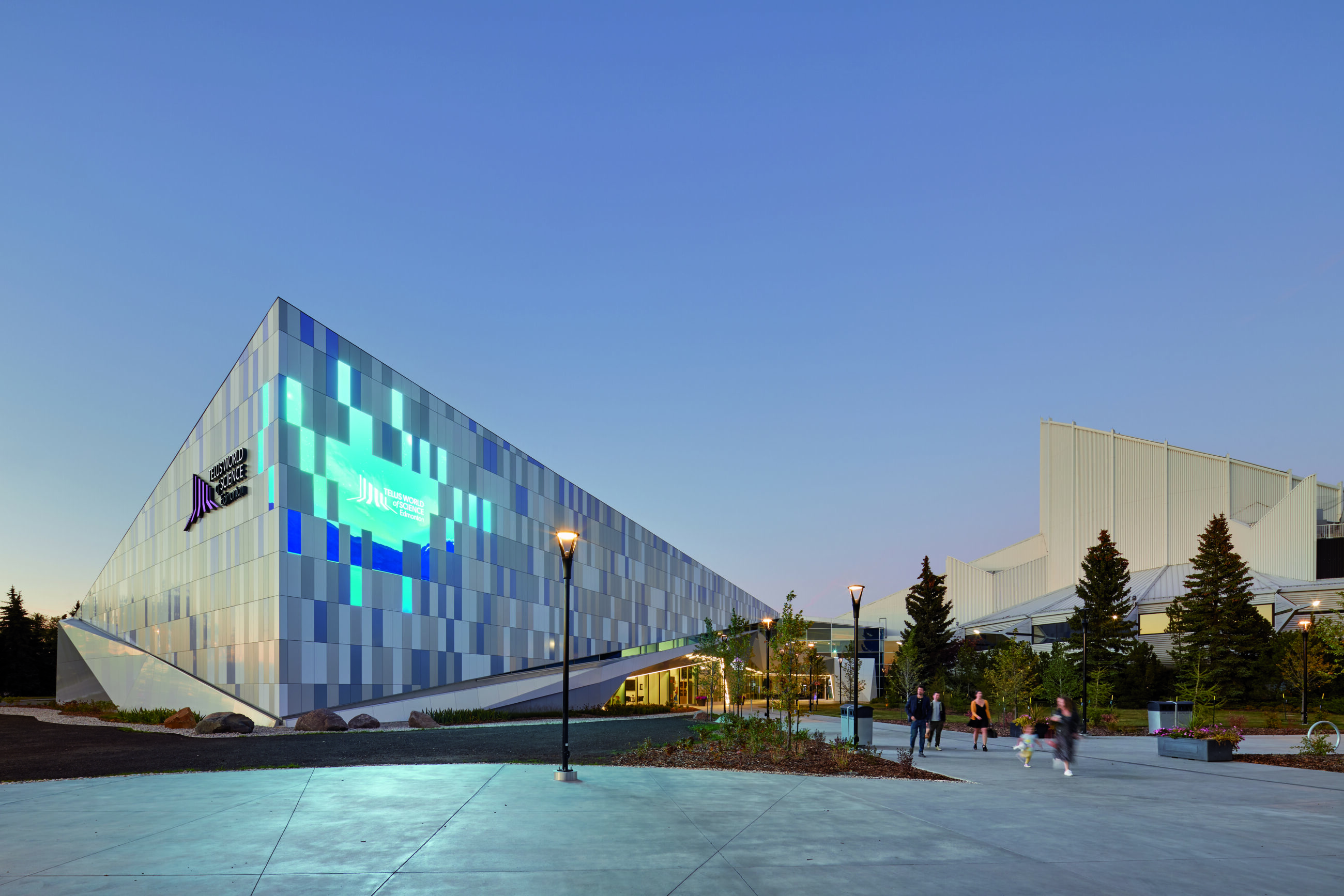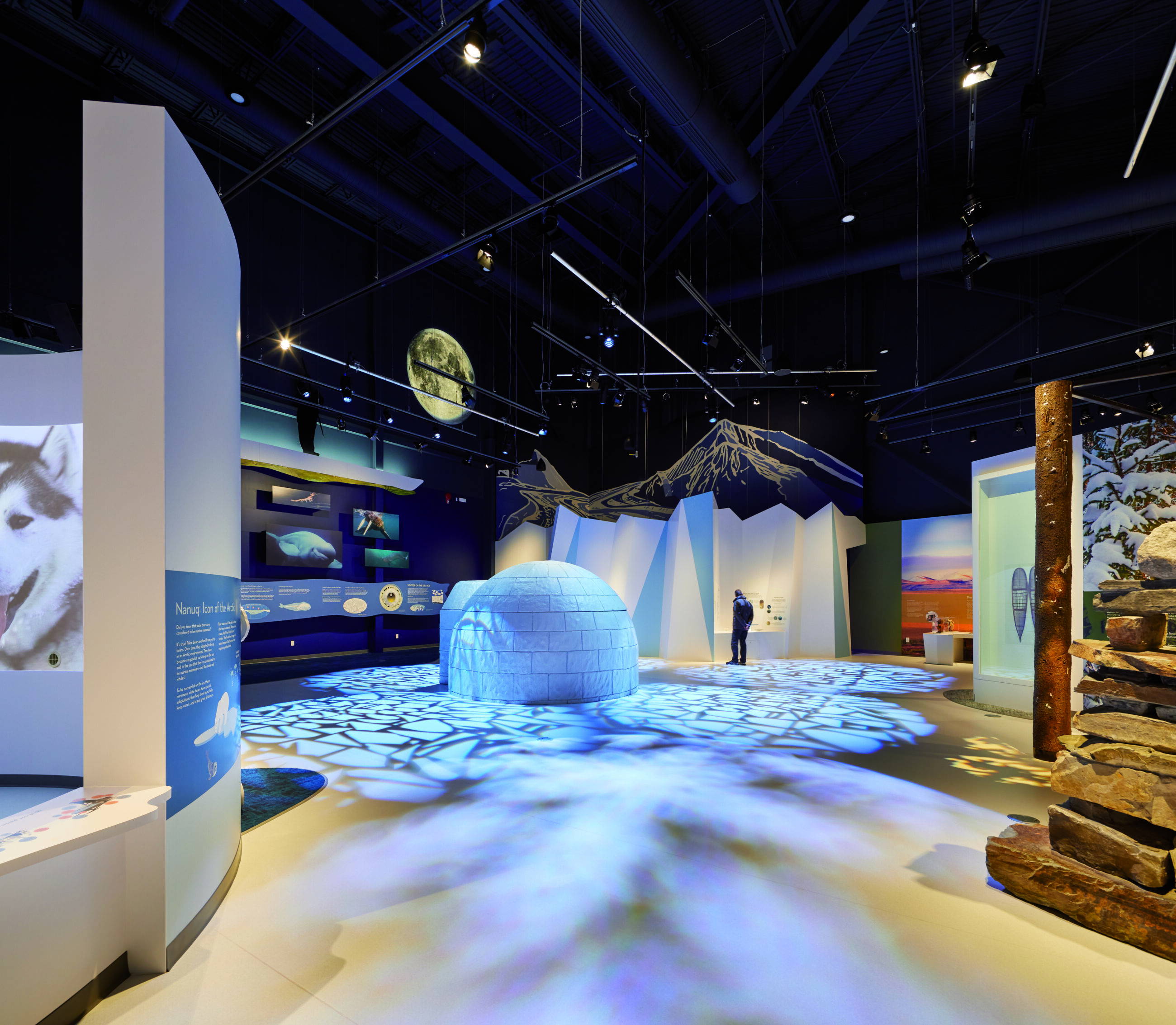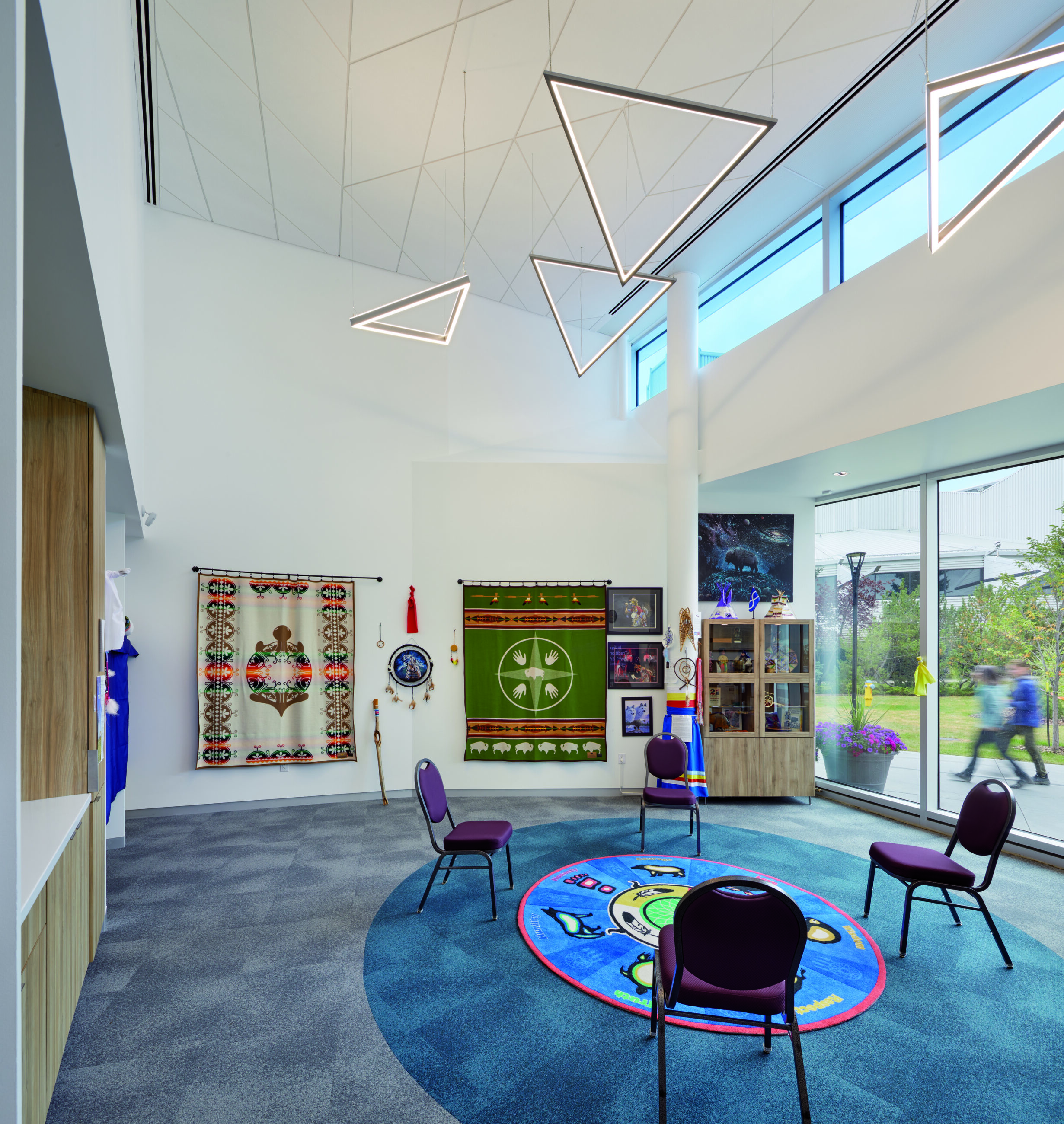We are thrilled to announce that Edmonton’s TELUS World of Science Aurora Expansion has achieved LEED® Gold Certification, an international symbol of commitment to sustainability excellence and green building leadership.
The TELUS World of Science Aurora Expansion is a unique and bold project that weaves the story of nature and humans together through sustainable design – making it a living educational centre with photovoltaic panels, rainwater harvesting, wetlands, and native planting that supports rich biodiversity. Injected with renewed energy, the building illuminates the world of science, engineering, math, and art.
Leadership in Energy and Environmental Design (LEED®) certification, promoted by the Canada Green Building Council, encourages the development of high-performing, resilient buildings that reduce energy use and carbon emissions, conserve water, reduce waste, promote sustainable site development, and prioritize user health.
The TELUS World of Science Aurora Expansion exceeded the team’s required LEED® Silver certification target to achieve LEED® Gold. Incorporated throughout the building, the science centre features various sustainable design elements across the six LEED® categories: Location and Transportation, Sustainable Site Development, Water Savings, Energy Efficiency, Materials Selection, and Indoor Environmental Quality.
The sustainable design elements include a grid-tied solar photovoltaic array designed to generate over 40-megawatt hour of electricity in its first year of operation, offsetting over 19,000 kilograms of greenhouse gas emissions. Designed to promote energy efficiency, the building reduces electricity and gas usage and their impacts on atmosphere and air quality through strategically-located glazing, high-performance envelope design, and mechanical and electrical system efficiencies; resulting in an anticipated 32 per cent energy savings compared to baseline.
The roof and canopies direct storm water into wetland landscaping, which features native and drought-tolerant plantings to eliminate the need for irrigation with potable water.
These strategies combine with LED and natural lighting, water recycling, and a focus on healthy materials – all to create a vibrant, inspiring, and sustainable learning environment.
Congratulations to the project team on this remarkable achievement!



